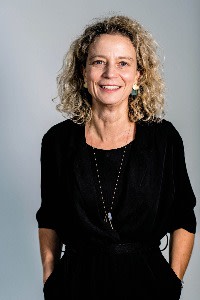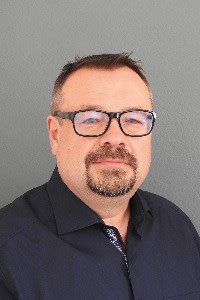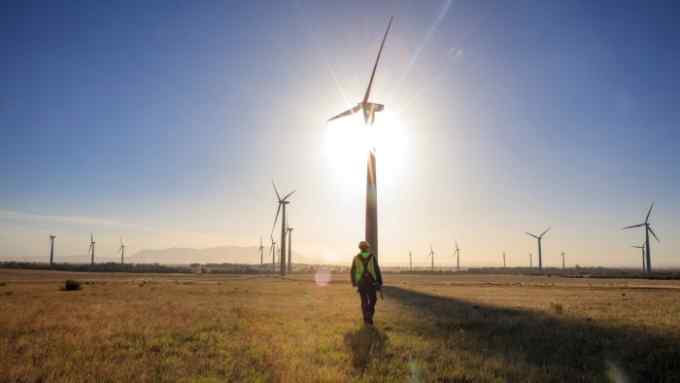Teaching award: a toolkit for change

Roula Khalaf, Editor of the FT, selects her favourite stories in this weekly newsletter.
It is not enough for business school students to develop theoretical knowledge; they also want to acquire a practical toolkit to fight the world’s most pressing issues — from global warming to managing plastic waste.
The submissions for the Responsible Business Education Awards reflected a rise in the quality of teaching materials on sustainability in recent years. This left some judges struggling to mark the increasingly advanced work, as schools get better at integrating sustainable business education into curricula.
“My general impression is extremely positive,” says Eric Cornuel, one of the judges and president of the European Foundation for Management Development, a non-profit network association and the largest of its kind in Europe.
The award submissions touched on some of the most important issues for promoting sustainable development but also demonstrated novel ways to teach digitally in a more inclusive way.

“Pedagogical innovations are very important when you give a very good grade [to a school],” says Cornuel. “We are in a very conservative environment in academia in general. Seeing institutions taking risks and innovating is extremely important.”
Judges and academics agree on the need to link theory and practice as the issues affecting the environment become more pressing. “A good case has an original field of research, a very clear theoretical background and puts students in a consultant role to prepare them for the real world,” says Cornuel.
The subjects covered in the shortlist include the alignment of business interest with sustainable goals, corporate social responsibility and how to tackle world hunger. Other studies address social impact projects, the circular economy and the reduction of single-use plastic.
A SHARING ECONOMY
Academics at Paris-based ESCP Business School focused on collaboration between institutions for an ambitious project aimed at identifying innovative solutions for sustainability challenges, such as access to affordable and clean energy.
Led by ESCP, the Transform project encompassed five universities and about 45 students participating in online lectures and coaching sessions over 14 weeks. Discussion ranged from sustainability challenges to how to develop novel solutions to old problems and bring them to scale.
Students were able to choose between a non-profit, profit or hybrid model for their enterprise, says Gorgi Krlev, assistant professor at ESCP and lead creator of the course. He says students welcomed the “freedom to develop their own course projects”, adding: “They were setting the course of whatever they were doing. We gave them very little information on what to do, but we equipped them with the right skills and they were free in designing the outcome.”

The students’ main critique was that they did not have the chance to develop their idea — a conscious decision by the universities given the scope of the collaboration, says Krlev.
The judges applauded the willingness of the course leaders to share its content with teachers around the globe. This is rare in the world of business schools and is seen as a way to increase the course’s impact, with local institutions able to tailor it to their own circumstances.
ACTION NOW
Antwerp Management School impressed the judges for providing a “very advanced and systematic approach” to teaching sustainability issues. Its Global Leadership Skills course, launched in September 2019, is centred around the university’s three “mission pillars”: self-awareness, global perspective and societal consciousness.
The programme aims to provide a global perspective and a focus on sustainability in business. The institution brings students together in multicultural groups where they are encouraged to use their different perspectives to tackle one of the UN’s sustainable development goals. These include the creation of sustainable cities and communities, as well as access to clean water and sanitation.

The Antwerp school says its course is built “on the belief that career development should not take place in isolation from the broad societal context in which careers unfold”.
Ans De Vos is professor and chair on sustainable careers at the school and the lead author of the course material. “We are convinced that we need to teach sustainability with the aim that students learn how to make a difference for the world through the project that they do,” she says.
The course poses questions to help students reflect on their experiences and apply their knowledge to solving sustainability problems. She says that employers today want key competencies from candidates, including self-awareness and the ability to work with others.
De Vos’s course helps boost these and other skills among students. One recent student wrote: “My team consisted of five people originating from three different countries and cultures. Even though there were difficulties along the way, we managed to deliver a result that we are truly proud of.”
RETHINKING PLASTICS
Andrew Hoffman and the University of Michigan’s Ross School of Business focus their course on the issue of managing plastic waste in the packaging industry, as part of the theme of a wider circular economy.
On first reading, says Cornuel, there is nothing out of the ordinary in the case study, which starts out as the story of a “heroic manager” with solid intuition when it comes to problem solving.

At the Ellen MacArthur Foundation, students follow Sander Defruyt on his quest to create a circular economy and reduce unsustainable plastic packaging. As head of the non-profit organisation’s New Plastics Economy initiative, he seeks to work with big business to cut the use of virgin plastic.
The case study addresses how a circular economy is impossible in the context of the current supply chain system and illustrates that businesses need to rethink the entire plastics market to formulate long-lasting solutions.
The material is deep in context and meaning on a prescient issue in business: how to engage key stakeholders to rethink and redefine the future of plastic, says Cornuel.
“Plastic packaging, in particular, has come under intense scrutiny from policymakers, lobbyists and industry powers,” he says. “The only small limitation that a reader might have with this case is that the learning objectives and pedagogical intentions are not always entirely explicit.”
MEDITATE TO SAVE THE PLANET

Here’s one way to help reach the UN’s sustainability goals: meditate. Imperial College Business School in London last March launched its Sustainability Leadership executive programme where students are encouraged to engage in meditation to help create a sustainable mindset.
Frank Brueck, a visiting researcher at the school in charge of the programme’s content says that meditation strengthens the parts of the brain that help us to make ethical decisions. “It [meditation] even changes the value structure of people and how they react in a different way to certain situations,” he says.

The course draws on Imperial’s Leonardo Centre on Business for Society’s huge database of more than 650,000 corporate sustainability initiatives from 6,000 companies for its case studies. “We have a great unique resource to understand what business is doing and from that we could see what’s missing,” says Brueck.
At the end of the programme, students have acquired material that can be developed into a pitch, targeting decision makers at companies to make a difference.
The course also addresses the perennial question of whether the interest of profits for stakeholders should be put above the sustainability goals of the business, or whether they should be aligned to create a sustainable enterprise that endures.
The judges
Diane-Laure Arjaliès
Ivey Business School
Sam Baker
Walk2COP27
Caryn Beck-Dudley and AI Renshaw
Association to Advance Collegiate Schools of Business
Jaime Bettcher
Aspen Institute
Eric Cornuel
European Foundation for Management Development
Javier Espinoza
Financial Times
François Faelli
Bain
Megan Kashner
Kellogg School of Management/ Impact & Sustainable Finance Faculty Consortium
Vicky Lester
The Case Centre
Tom Levitt
Claude Littner Business School
Darija Miletic
oikos International
Details of the resources are also available on the Harvard Business Publishing site, the Case Centre and Ivey Publishing.

Comments